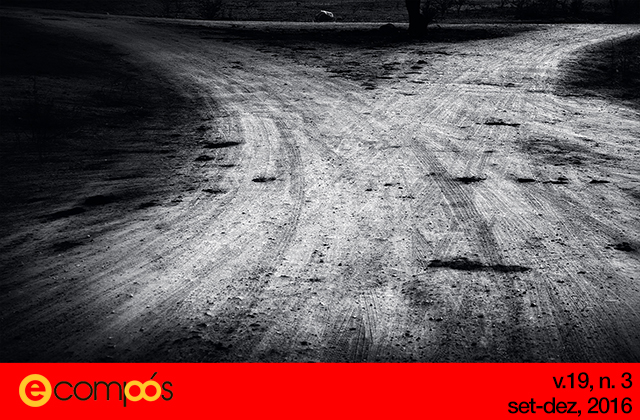THE HEALTH OF OUR POPULATION: the divulgation of science in the fields of non-formal education
DOI:
https://doi.org/10.30962/ec.1297Keywords:
Divulgação Científica. Ciência e Tecnologia. Educação Não-FormalAbstract
This article is the work developed in the research group Scientific Culture and Knowledge Production, Educational Program Graduate Education of the Universidade Federal Maranhão, which focuses its research on science communication, science popularization and public understanding of science, terms used in this work with the same sense, in order to find similarities between the actions of promotion and education. To this, we used oral history as methodology, since in this aspect of qualitative research can explore the relationships between history and memory, which constitutes the essence of this research. The construction of history and memory of the programs is Life Food and Health of Our People, broadcast on Radio Educadoria do Maranhão, in the 1980 and 1990 were made through dialogue with the sources: narratives of persons, tape recordings programs, among others, came under the theory of Freire's Popular Education and non formal education scholars such as Maria da Gloria Ghon allowed us to see that these radio programs consisted non formal important tools of education, because they become dynamic actions which dealt with scientific knowledge as social practice, allowing that the science became part of everyday life in the periphery and the rural community of Maranhão.Downloads
Downloads
Published
How to Cite
Issue
Section
License
The submission of originals to this journal implies the transfer, by the authors, of the printed and digital publication rights. The copyrights for the published articles belong to the author, with the rights of the journal over the first publication. The authors can only use the same results in other publications, clearly indicating this journal as the source of the original publication. Because we are an open-access journal, the free-of-charge,educational, scientific, and non-commercial use of the papers is allowed, as long as the source is cited.
Authorship
Any person who has effectively participated in the conception of the study, the development of the experimental part, the analysis and interpretation of data and the final wording, is considered as an author. By submitting an article for publication in E-Compós Journal, the author agrees with the following terms: 1. The author keeps the rights on the article, but its publication in the journal automatically implies the full and exclusive disposal of the copyright rights for the first edition, without payment. 2. The ideas and opinions expressed in the article are the sole responsibility of the author, not necessarily reflecting the views of the journal. 3. After the first publication, the author is authorized to take additional contracts, independent of the journal, for the dissemination of the paper by other means (e.g. when publishing in the institutional repository or as a book chapter), provided that the complete citation of the original publication. 4. The author of a published article is allowed and is stimulated to distribute his work online, always with the proper citation of the first edition.
Conflicts of interest and research ethics
If the developed research or the publication of the article may raise doubts as to potential conflicts of interest, the author should declare, in a final note, that no links to funding bodies have been omitted, as well as to commercial or political institutions. Similarly, the institution to which the author is bound should be mentioned, as well as others that may have collaborated in the execution of the study, evidencing that there are no conflicts of interest with the result already presented. It is also necessary to inform that the interviews and experiences involving human beings have obeyed the established ethical procedures for scientific research. The names and addresses informed in this journal will be used exclusively for the services provided by this publication, not made available for other purposes or to third parties. The copyrights belong exclusively to the authors. The licensing rights used by the journal consist in the Creative Commons Attribution 4.0 (CC BY 4.0) license: sharing (copying and distribution of the material in any media or format) and adaptation (remix, transformation and creation of material from licensed content for any purposes, including commercial) are permitted.



